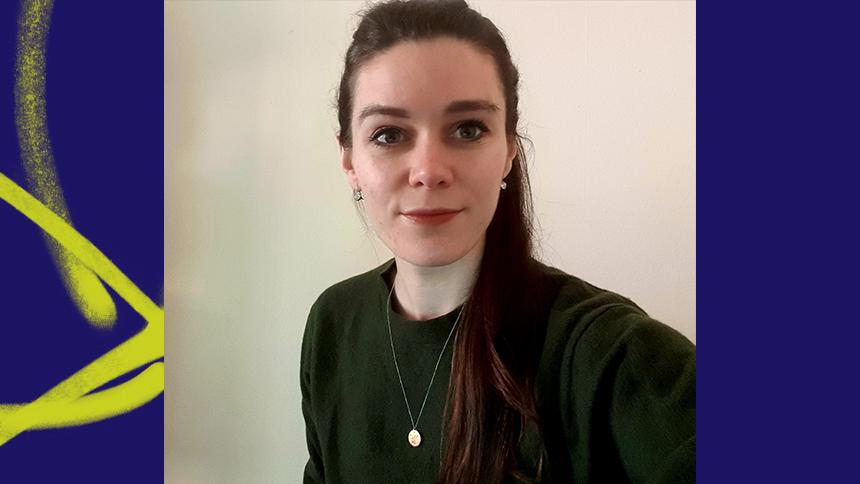Researching inequities in dementia care
Meet Clarissa Giebel, Senior Research Fellow at the University of Liverpool.
Favourite things?
- Book – My favourite book is pretty hard to pick. I love Kafka, Hanya Yanagihara, Haruki Murakami and Margaret Atwood’s writings, amongst many others!
- Way to spend time – Definitely running.
- Memory – So far, smashing my personal best at the London Marathon last year, after the pandemic had put a stop to races for too long.
Why dementia research?
My background is in psychology, and I have always been fascinated in what happens in the brain.
During my studies, I’ve become particularly interested in dementia, in how what happens in the brain can affect our lives so much in so many ways.

Being originally from Germany, I have grown up in a system where people from any background receive more equitable support and help if they need it, and this is something that is charging my dementia research.
I want to try and break down those many inequities in dementia care, to allow anyone to receive the care and support that they need.
How has Alzheimer’s Society supported your work?
The Society has so far funded one of my research projects via a Knowledge Exchange Fellowship with Maastricht University in the Netherlands.
As part of this, I explored differences and similarities in dementia care inequities. We conducted a survey and interview study with carers and people with dementia in the UK and Netherlands.
We found that the Netherlands has one key facilitator to enabling better care after diagnosis – Dementia Care Navigators.
What are you currently working on?
My research is looking at inequities in dementia care, both for people living with dementia and unpaid carers.
There are two key projects I am leading on at the moment, after having led the first COVID-19 research into how the pandemic has affected dementia social care in the community and in care homes.
One project is exploring experiences of finance management and spending habits in dementia, which is about to finish recruitment.
The other is building on the COVID-19 research I led, exploring unmet mental health needs and paid and unpaid dementia carers.
What difference do you hope this will make?
I am hoping that this research will help identify ways in which people with dementia and unpaid carers can be supported better to live well and independently, in their own home or in a care home.
In what direction would you like to take your research in future?
Whilst I am already working with a number of countries to explore more global inequities in dementia, I am actively building my networks to explore these on a larger scale.
We know of severe difficulties in getting care in, for example, Colombia and India. I hope that my research will identify ways in which we can enable improved dementia care for everyone.
How can you help?
£15.50 could pay for an hour of supporting PhD students to conduct
Donate research projects.

